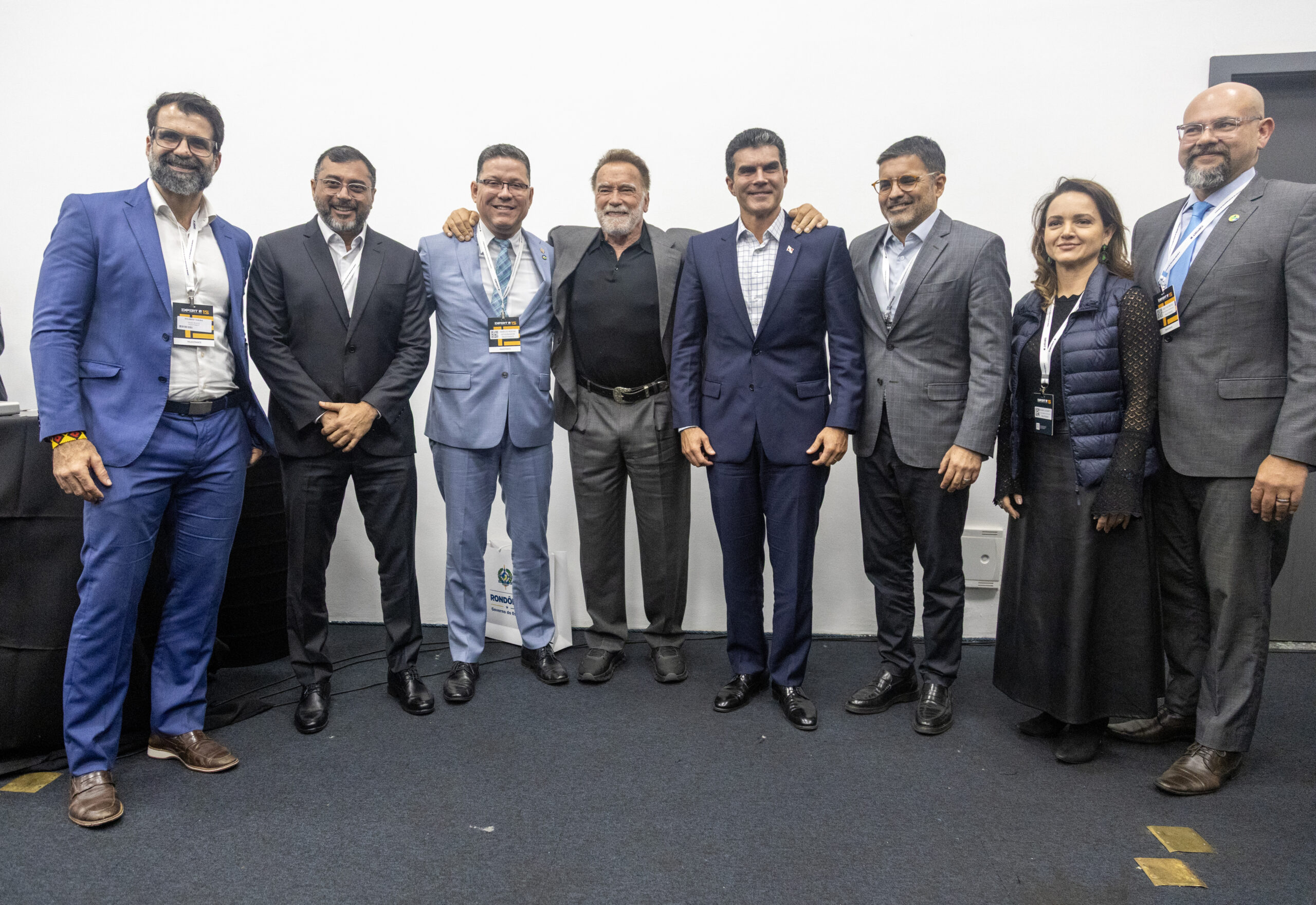São Paulo, July 28, 2025 – Actor, businessman, and former California Governor Arnold Schwarzenegger reconnected with the Governors’ Climate and Forests Task Force (GCFTF), a group he founded in 2008 that is now the world’s largest subnational governmental network focused on forests and climate. The meeting, organized by the GCFTF, together with bioeconomy-partner and financial boutique firm BH26 and investment firm XP, took place last Friday (July 25) during the Expert XP event. It was attended by Governors Wilson Lima (Amazonas), Helder Barbalho (Pará), Marcos Rocha (Rondônia), as well as environmental secretaries Mauren Lazzaretti (Mato Grosso), Marcello de Lima Lellis (Tocantins), and Eduardo Taveira (Amazonas).
During the meeting, the governors and environmental secretaries highlighted the GCFTF’s importance in coordinating, defining, and implementing public policies on forest protections and economic development within subnational states. The goal is to strengthen environmental preservation while developing a low-carbon economy with the potential to promote social equality in Amazonian states – in other words, advancing a New Forest Economy. “Regional governments must be protagonists in responding to the climate crisis. It’s necessary to create a fairer ecosystem and ensure resources reach those who fight to preserve nature,” stated Amazonas Governor Wilson Lima.
Along the same lines, Pará Governor Helder Barbalho emphasized the need to foster economic alternatives that allow for the region’s social development. “Environmental commitment will only progress if there is also social commitment. The world needs to understand this,” said Barbalho. The Governor of Rondônia stressed the importance of finding a balance between preservation and food production in the state. “Rondônia’s population of 2 million inhabitants desires this reconciliation,” he said.
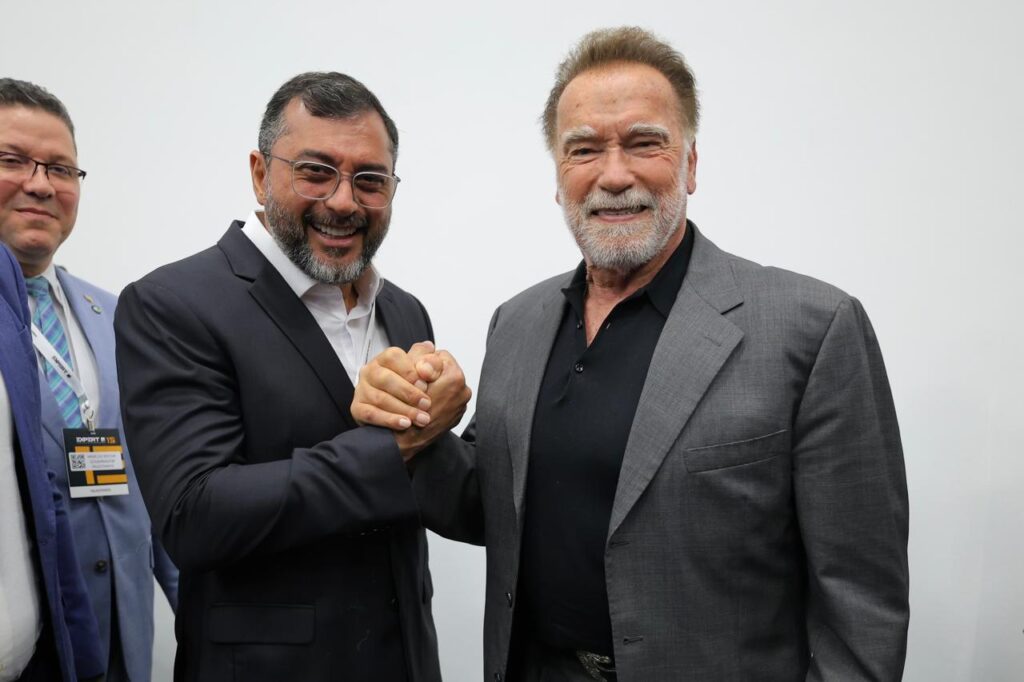
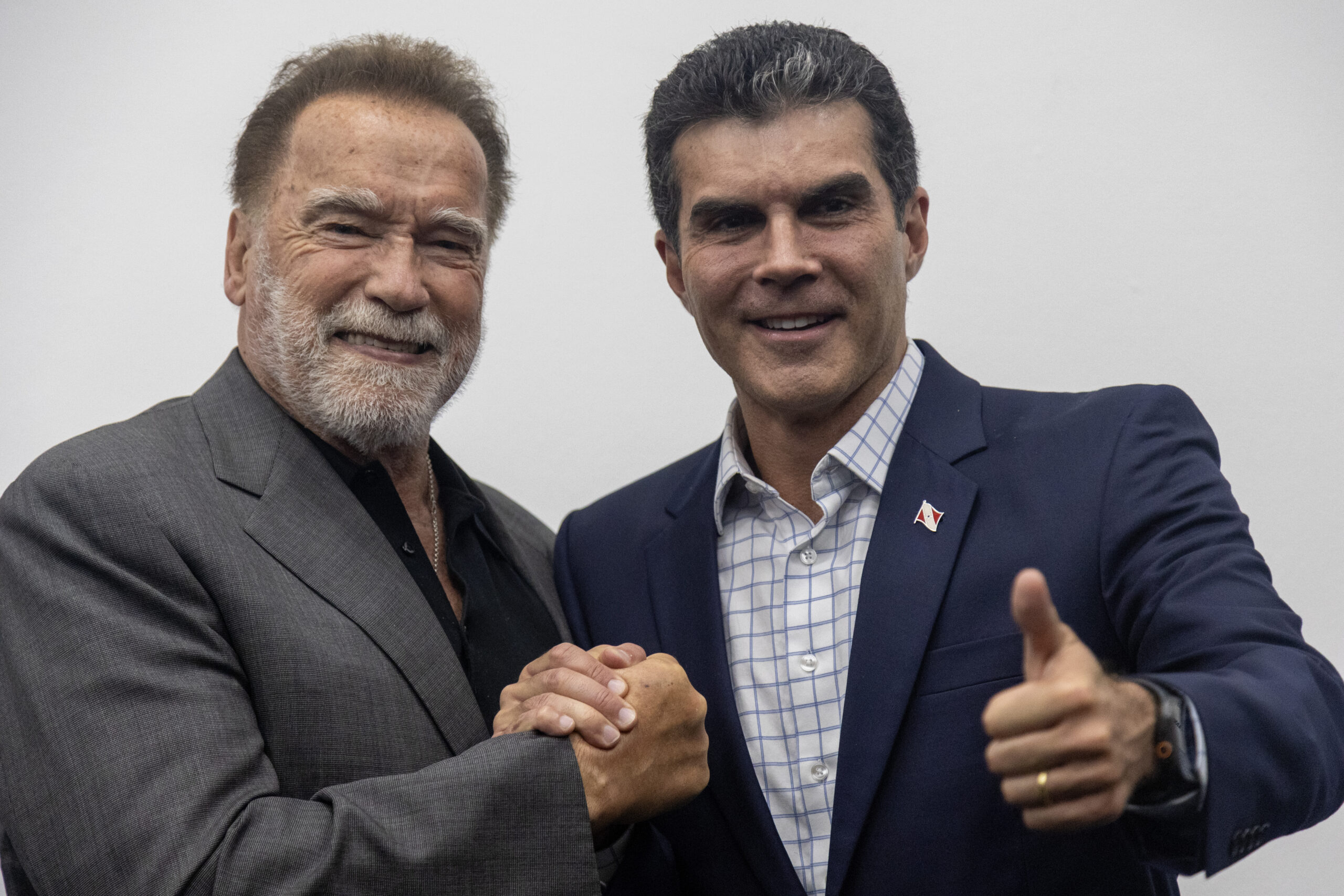
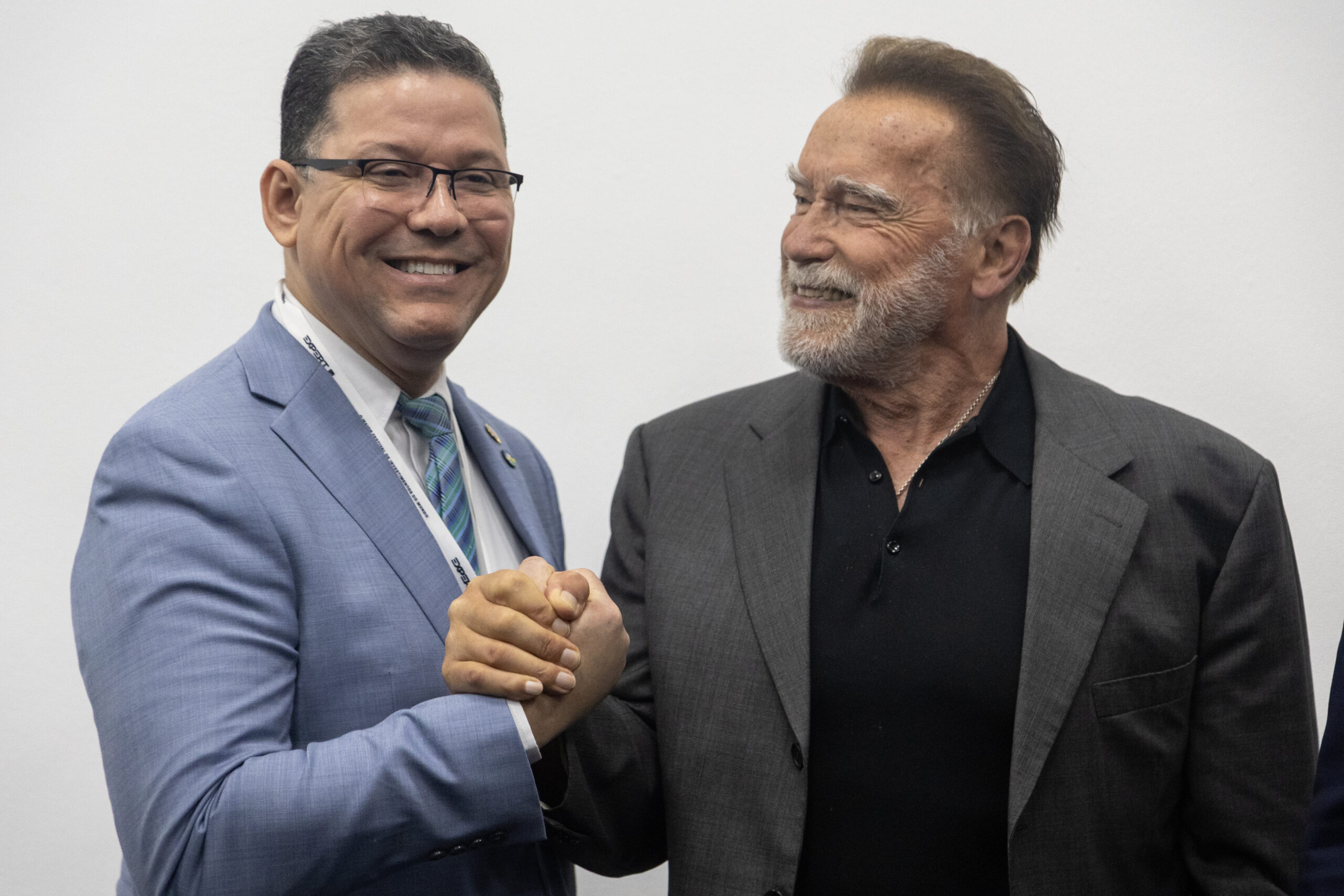
Schwarzenegger, for his part, recalled his tenure as California’s governor when he implemented policies to incentivize renewable energy and establish emissions reduction targets. “At the time, we were the only state that reduced pollution by 25%. We significantly expanded the use of renewable energy. This was independent of the federal government,” he said.
For the former California Governor, this year’s United Nations Climate Change Conference (COP30), to be held in Belém, is an extraordinary opportunity to increase the presence of subnational states in climate discussions. “We know we have the responsibility to act locally. The power is at the state and municipal levels. COP should have a day dedicated to subnational governments,” Schwarzenegger said, recommending that this should be a demand from the GCFTF to mobilize public opinion around the urgency of the climate agenda and the strategic role of state governments.
The former California Governor also reminded those present of the beginning of the Governors’ Climate and Task Force’s mobilization in 2008, after a trip to Manaus. “I remember James Cameron, the film director, told me I had to fly over the forest and visit some communities. It was a wonderful and very enlightening trip,” Schwarzenegger recalled. At the end of that year, during the Governors’ Global Climate Summit in Los Angeles, California, the GCFTF was launched with 10 member states, representing subnational governments from the United States, Brazil, and Indonesia. Today, the GCFTF includes states from 11 different countries, totaling 45 subnational governments, covering all of the Brazilian Amazon, 85% of the Peruvian Amazon, 75% of the Bolivian Amazon, and 60% of Mexico’s and Indonesia’s forests.
Amazonas Governor Wilson Lima highlighted the growth of the GCFTF network as an important tool for state engagement. “This expansion has led us to create innovative public policies that treat forests not as an obstacle to development, but as a central solution to the climate crisis. We believe that real transformation comes through cooperation,” he affirmed, detailing the goal of the GCFTF’s Manaus Action Plan, launched in 2022, to reduce deforestation by up to 80% in GCFTF member states.
In May of this year, during the GCFTF’s annual meeting in Rio Branco, Acre, the continuous structuring of the New Forest Economy was central to discussions amongst member governments and partners. Measures such as combating the growing damage from forest fires, partnerships with indigenous peoples, poverty reduction, concerns about the spread of organized crime in forest areas, and the necessary maintenance of standing forests were present in both closed meetings and public working sessions.
Among the initiatives advanced during the meeting were the Acre Letter, which advocates for the integration of subnational jurisdictional programs with national strategies, including Brazil’s forthcoming Tropical Forest Forever Facility; the implementation of the Global Bioeconomy Partnership Network, which is expected to present pioneering public-private partnerships across the Amazon and garner support during COP30; and a partnership between the GCFTF and Amazonia+, with European Union funding to foster transnational exchange of innovative local experiences in combating deforestation.
Ending his meeting with the Brazilian governors from the GCFTF, Schwarzenegger recommended that the group be ambitious in its approach to raising public awareness. “People are tired; we need to create something new and powerful. And Brazil is very capable of this, as it has sharp and creative minds,” said the former California Governor.
Check out this video of the discussion (English and Portuguese)!
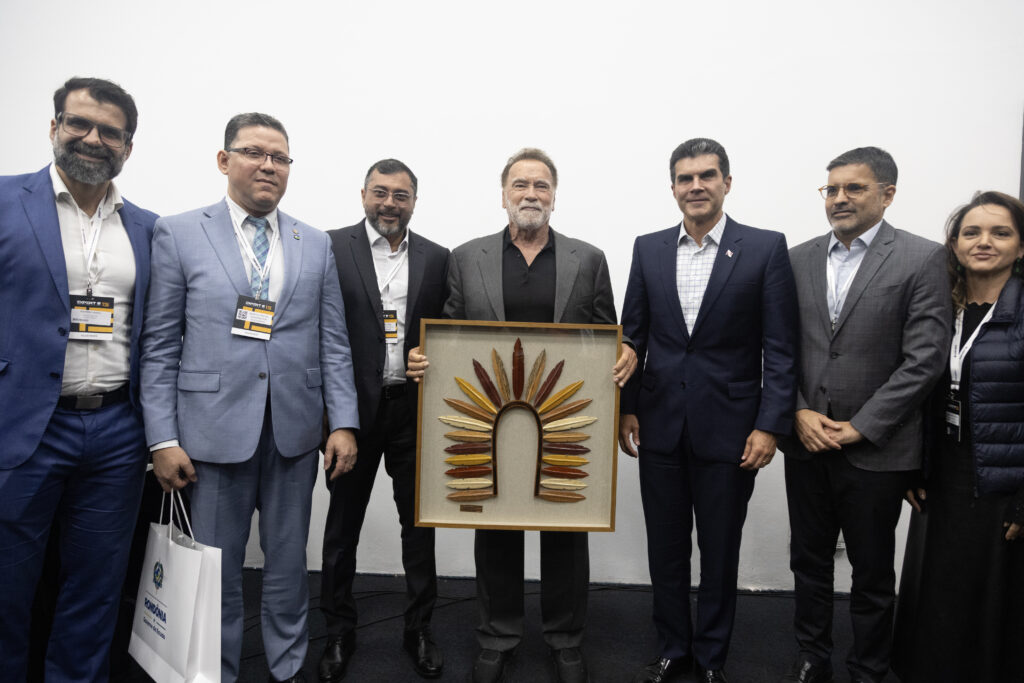
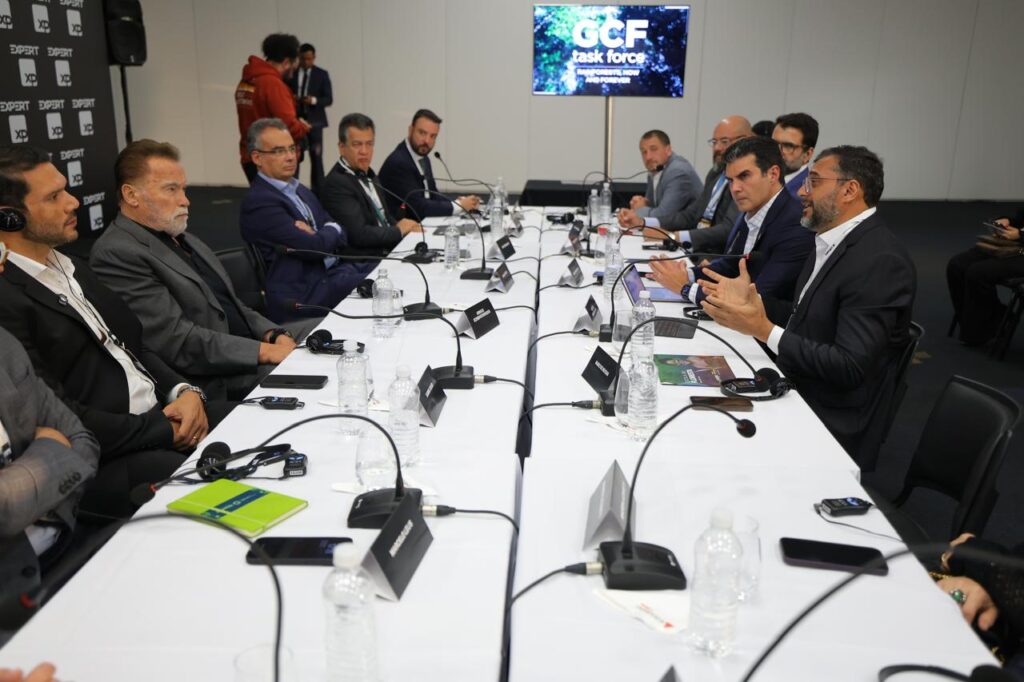


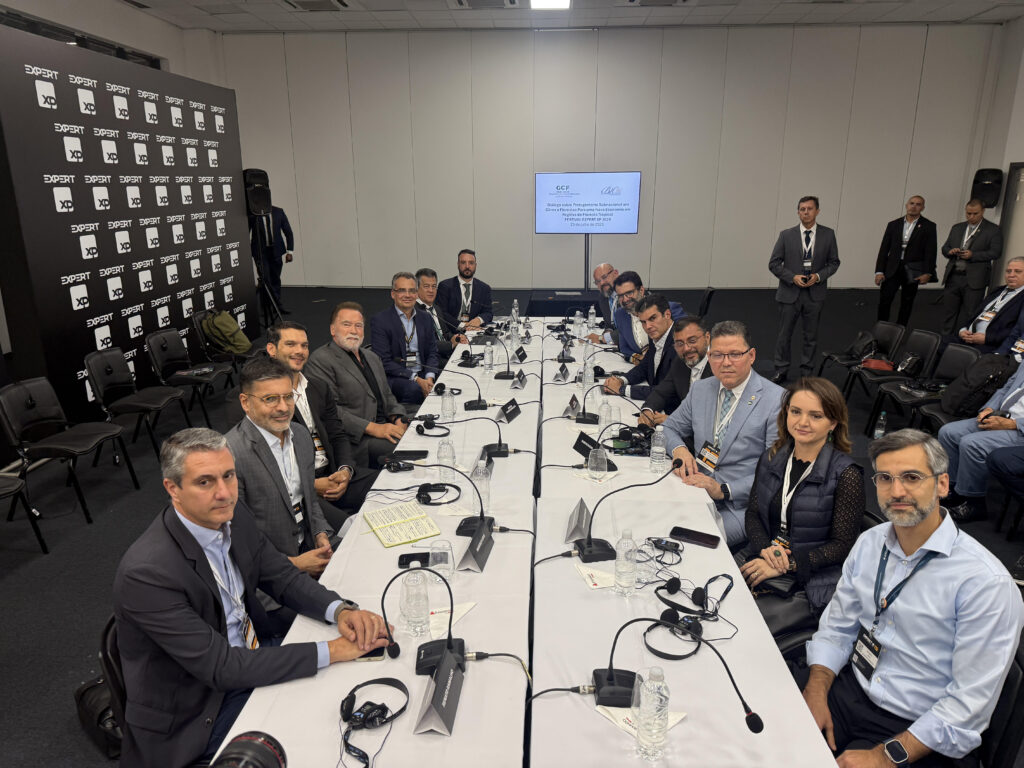
About the Governors’ Climate and Forests Task Force
The GCFTF is the world’s largest subnational governmental network dedicated to protecting forests, reducing emissions, and enhancing livelihoods across the tropics. It is made up of 45 states and provinces from 11 countries that include more than one-third of the world’s tropical forests—including all of Brazil’s Legal Amazon, more than 85% of the Peruvian Amazon, more than 75% of the Bolivian Amazon, 65% of Mexico’s tropical forests, and over 60% of Indonesia’s forests. Over the last 15 years, the GCFTF has played a key role in supporting these state and provincial governments as they work to build jurisdictional programs to reduce emissions from deforestation and land use and to promote new forest economies. The network was brought together in 2008 by then-California Governor Arnold Schwarzenegger to address global climate change and is supported by a global secretariat based at the Emmett Institute on Climate Change and the Environment at UCLA School of Law, in partnership with the University of Colorado Boulder. The GCFTF has received support from multiple partners over the years, including USAID, the Climate and Land Use Alliance, and the Norwegian government (NICFI and Norad).
Press Contact
Guilherme Manechini
+55 (11) 9.6984-0404
guilherme@kyvo.com.br
Maurício Capela
+55 (11) 9.9215-4207
capela@kyvo.com.br

